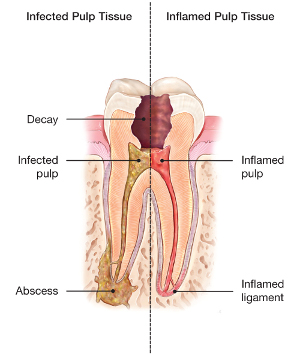Maintaining good oral health is crucial for your overall well-being. One of the cornerstone practices for achieving this is scheduling and attending regular dental check-ups. These routine appointments with your NHS dentist serve a vital role in preventing dental issues, diagnosing problems early, and ensuring your smile remains healthy and beautiful. In this comprehensive 1200-word article, we will explore the significance of regular dental check-ups, what to expect during these visits, and the many benefits they offer.
The Foundation of Oral Health
Oral health goes beyond having a dazzling smile. It encompasses the health of your teeth, gums, tongue, and the entire oral cavity. Poor oral health can lead to a range of problems, including tooth decay, gum disease, bad breath, and even more serious conditions like oral cancer.
Regular dental check-ups are the foundation of maintaining optimal oral health. These appointments are typically recommended every six months, although your dentist may suggest a different schedule based on your individual needs and risk factors.
The Dental Check-Up Process
A typical dental check-up consists of several essential components:
1. Oral Examination: Your dentist will examine your mouth, teeth, and gums for any signs of problems. This includes looking for cavities, gum inflammation, oral lesions, and other issues.
2. Professional Cleaning: Dental hygienists often perform a professional cleaning during your visit. They use special tools to remove plaque and tartar buildup, which can’t be effectively removed through regular brushing and flossing.
3. X-rays: Depending on your dental history and risk factors, your dentist may recommend dental X-rays to check for hidden issues like cavities between teeth and problems with the jawbone.
4. Discussion: Your dentist will discuss your oral hygiene routine, diet, and any concerns you may have. This is an opportunity to ask questions and seek advice on maintaining good oral health.
The Benefits of Regular Dental Check-Ups
Now, let’s dive into why regular dental check-ups are so important:
1. Early Detection of Dental Issues
Regular check-ups allow dentists to spot dental problems in their early stages. Conditions like cavities, gum disease, and oral cancer are more manageable and have a higher chance of successful treatment when detected early.
2. Prevention of Dental Problems
Professional cleanings during check-ups remove plaque and tartar buildup, which can lead to cavities and gum disease. Preventing these issues saves you from more extensive and costly treatments in the future.
3. Personalized Oral Care
Your private dentist in Camden town can tailor their advice and treatment recommendations based on your specific needs and concerns. This individualized approach ensures you receive the most effective care.
4. Monitoring Changes Over Time
Regular check-ups provide a baseline for your oral health. By tracking changes over time, dentists can identify patterns and address potential issues before they worsen.
5. Education and Advice
Dentists are a valuable resource for oral health education. They can provide guidance on proper brushing and flossing techniques, dietary choices, and habits that promote good oral hygiene.
6. Preventing Bad Breath
Dentists can help identify the causes of bad breath (halitosis) and recommend treatments or lifestyle changes to address the issue.
7. Enhancing Aesthetics
If you’re interested in improving the appearance of your smile, regular check-ups can be a starting point for discussing cosmetic dentistry options like teeth whitening or orthodontics.
8. Oral Cancer Detection
Oral cancer can be life-threatening if not detected early. Regular check-ups include an oral cancer screening, increasing the chances of early detection and successful treatment.
9. Reducing Dental Anxiety
Frequent visits to the dentist help normalize dental care, potentially reducing anxiety for those who fear dental appointments.
10. Cost Savings
Preventive care is generally more cost-effective than treating advanced dental issues. By addressing problems early, you can save on extensive dental work.
Who Benefits from Regular Dental Check-Ups?
Everyone, regardless of age or dental history, can benefit from regular dental check-ups. Children, adults, and seniors all have unique oral health needs that can be addressed through regular dental care.
Children: Regular check-ups help children establish good oral hygiene habits and identify any early developmental issues with their teeth and bite.
Adults: Adults may require maintenance for previous dental work (e.g., fillings, crowns) and benefit from screenings for conditions like gum disease and oral cancer.
Seniors: As we age, dental issues can become more prevalent. Regular check-ups are vital for maintaining oral health and addressing age-related concerns.
Overcoming Common Barriers to Dental Care
Some individuals may hesitate to schedule regular dental check-ups due to various reasons, including fear, cost, or busy schedules. However, it’s essential to overcome these barriers for the sake of your oral health:
Dental Anxiety: If you experience dental anxiety, discuss your concerns with your dentist. They can offer strategies to make your appointments more comfortable, such as sedation options.






